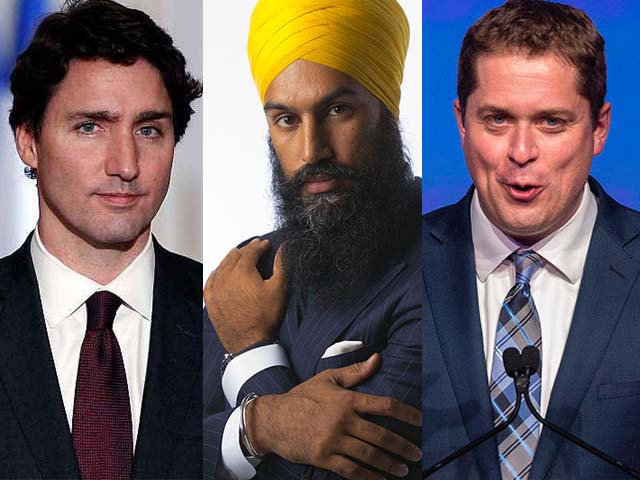
Flags outside the United Nations headquarters in New York. PHOTO: AFP
Has the United Nations outlived its utility?
The UN seems particularly toothless, because all it has done for Syria is sit in its ivory tower and pontificate.
The United Nations (UN) was formed in 1945 in the wake of World War II, and aimed to bring together all nations of the world at a single table to avoid another world war. Though the organisation was a successor to the League of Nations (LoN), it was formed not only to act as a mediator between member countries, but also to promote harmony amongst them. In addition, it would promote social development and justice across the globe, and take action if a consensus was reached and approved by the all-powerful Security Council (SC).
However, as it nears 75 years, debate is rife over whether the UN has outlived its utility.
In the past decade or so, the shortcomings of the UN have seemed more acute. Critics of the organisation point to the various conflicts across the world with no end seemingly in sight as indicators of the ineffectiveness of the UN. The ongoing crisis in Syria, for instance, which is facilitated by the involvement of several countries, including states belonging to the SC, is a major blemish on the UN’s track record. Syria has been engulfed in a proxy war under a sectarian umbrella with militias, official aid and covert funding from the US, Russia, Saudi Arabia and Iran. In essence, it is a battle not for peace but rather, to achieve regional hegemony.
The UN has seemed particularly toothless in this matter because on the face of it, all it appears to have done for Syria is sit in its ivory tower and pontificate. In all earnestness, the Syria matter has undergone several resolutions and talks at the UN, only to be vetoed by the SC. Perhaps worse, when the UN did try to pass a ceasefire, it was promptly ignored by most actors in the region.
Similarly, the UN’s failure to stop the atrocities in Yemen is counted as another failure. Interestingly, the cause of conflict in Yemen is not too different from Syria, as both are proxy wars between Saudi Arabia and Iran over the cause of religious hegemony. More than 10,000 civilians have died, but the conflict is so volatile even figures by the UN are not consistent. If an organisation whose workers have diplomatic immunity cannot access conflict zones to collect data or provide aid, it is no less than a major failing. Just like in the case of Syria, any resolution on Yemen gets mired in months of unproductive discussions, with vetoes from the SC effectively hobbling actual progress. The biggest obstruction to progress is Saudi Arabia, as even though it is not on the SC itself, two of its staunchest allies – the US and the UK – are. Both of these SC members are two of the biggest arms suppliers to Saudi Arabia, which is why every effort is made to not disturb an important customer, despite the rising number of innocent deaths.
Another case to consider is of Taiwan. Despite the fact that it has been a sovereign nation for the better part of the last century, it is unable to become a member of the UN, solely because China blocks any attempts for it to become one. China alleges Taiwan is part of Chinese territory, and hence cannot be considered an independent nation. The Kashmir issue follows a similar vein; with the UN unable to prevent armed conflict over it in the region, while also remaining stagnant when it comes to resolving the water sharing problem in the region. Again, the overlying tussle is between the SC itself, as Pakistan and India’s alliances with its members lead to blocking any progress on the matter.
Furthermore, the most glaring example of the failure of the UN is its response to the Rohingya crisis in Myanmar. As the Rohingya community faces constant military action and abuse, their exodus continues. Once again, even though the UN has admitted that the persecution faced by the Rohingyas classifies as acts of genocide, there seems to be all talk and no action. Yes, it has called on Myanmar to end violence, but not much has actually been done to actively protect or assist the Rohingyas stuck in Myanmar, or to admonish the Burmese government on their military campaign against this particular group.
Yes, the UN has set up refugee camps for refugees arriving in Bangladesh. Yet, anyone who grew up in Pakistan in the 90s and has seen refugee camps lining the border with Afghanistan, knows these camps are just a tarp over your head and not much else. They were set up by the UN for the refugees fleeing Afghanistan, and have become more of a permanent fixture by now. These thousands of tents provide little protection against the weather, and are under-resourced when it comes to basic provisions. As in the case of Bangladesh, Pakistan is another developing country with barely enough resources or strong leadership to take care of its own people, let alone fending for millions of refugees.
In yet another case of the UN’s ineffectiveness, various UN agencies have been accused of sexually harassing the very people and communities they seek out to help. In the past year alone, over 150 cases of sexual misconduct have been reported. With cases rising against other organisations such as Oxfam and Doctors Without Borders, UN employees claim sexual harassment and assault is rampant in their workplace too, with there being consequences to reporting, and nothing being done to stop such a culture from flourishing further.
Additionally, the UN Peacekeeping forces deployed across the globe in troubled areas, while credited with maintaining peace and suppressing renewed war, have also been accused of committing human rights abuses. Furthermore, the World Economic Forum has revealed that even though the presence of UN Peacekeepers does affect peace, conversely, countries become too reliant on them, making it difficult for the UN to facilitate a transition.
However, things aren’t all bad. Through the United Nations Development Programme (UNDP), the UN actively works on human services initiatives, and actively works to alleviate poverty, provide basic services and assist NGOs in a bid to help the downtrodden. Under the United Nations Educational, Scientific and Cultural Organisation (UNESCO), it promotes cultural exchange and the protection of historical sites across the globe. Overall, it acts as a global think tank, conducts research and shares data on climate, migration, conflict and human rights, encouraging governments to take action. Given its reach and expertise, it acts as a first responder to the natural calamities occurring across the world, while also funding and supporting the eradication of diseases like polio and malaria.
The UN has thus achieved quite a lot since its conception. It has the people, skills and network to span the globe and provide help where needed. Unfortunately, it has also become a bloated and bureaucratic organisation beholden to the whims of its powerful SC, and of late, it has demonstrated a lack of accountability when it comes to how it functions on the ground.
While it remains an effective force at the base level, at the top, the UN remains inefficient, with most important decisions dependent on high level diplomacy among members who are largely driven by their national interests alone. It may not be a failure, but is quite near being declared ineffective, and will remain in this state unless it acquires more decisive leadership and takes action to no longer just be a platform for squabbles amongst nations.




COMMENTS (5)
Comments are moderated and generally will be posted if they are on-topic and not abusive.
For more information, please see our Comments FAQ